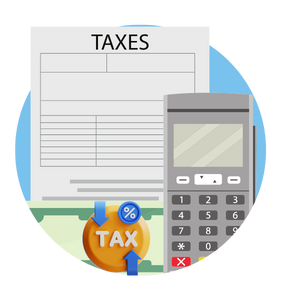Apart from paying taxes, the deductor must also file TDS returns. TDS, or Tax Deducted at Source, is a tax collection mechanism where a portion of the tax is deducted from payments made to individuals or entities. TDS returns are a quarterly statement submitted to the Income Tax Department and are a crucial part of tax compliance. Filing TDS returns accurately and on time helps avoid penalties and contributes to government operations and public services.


What is TDS Return Filing?
TDS return filing is an online process that helps both individuals and businesses stay compliant with tax laws. When TDS is deducted on payments, the deductor is required to file a TDS return. The details of these returns appear in Form 26AS, which is a consolidated statement of tax credits. To file the TDS returns, various details are required, such as:
PAN of the deductor and the deductee.
Amount of tax paid to the government.
TDS Challan information.
Other relevant details if applicable.
Benefits of TDS Filing
Filing TDS returns provides benefits not only to the government but also to taxpayers. Some key advantages include:
The government can track all TDS returns filed and catch those who fail to comply. If an individual or business misses the due date, they may face penalties.
Since TDS is deducted at the source, the number of taxpayers increases, contributing more to national development
TDS filing makes it easier for both employers and employees to manage taxation matters and ensure smooth tax compliance.
TDS Certificate
A TDS certificate is provided by the deductor to the deductee (employee or payee) as proof of the TDS deducted and filed. This certificate plays a vital role in ensuring that the deducted tax is properly accounted for.


TDS and Its Importance
TDS is collected by the Government of India when certain transactions take place. The tax is deducted when the money is credited to the payee's account or when the payment is made, whichever occurs first. TDS is generally deducted at a rate of 10%, but it may vary depending on the type of payment and the recipient’s tax status.
TAN (Tax Deduction and Collection Number)
Any person or entity that is responsible for deducting tax at source is required to obtain a TAN (Tax Deduction and Collection Number). This 10-digit alphanumeric number is mandatory for filing TDS returns. TAN registration can be easily obtained with the help of experts at CAPLUS. It is important to note that salaried individuals do not need to obtain a TAN.

Eligibility for TDS Filing
TDS returns must be filed by organizations or employers that have a valid TAN. They are required to deduct tax at source on specific payments such as:
Salary payments
Income from securities, lottery winnings, and horse races
Insurance commissions
Payments related to national saving schemes and more
TDS Filing Due Dates
TDS returns must be filed quarterly, and the due dates for each quarter are as follows:
1st Quarter (April - June): 31st July
2nd Quarter (July - September): 31st October
3rd Quarter (October - December): 31st January
4th Quarter (January - March): 31st May
Why Choose CAPLUS for TDS Filing?
At CAPLUS, we specialize in simplifying the TDS return filing process. Whether you are an individual or a business, our experts help ensure that your TDS is filed accurately and on time. We also offer guidance on taxation matters to ensure you remain compliant with the latest regulations.